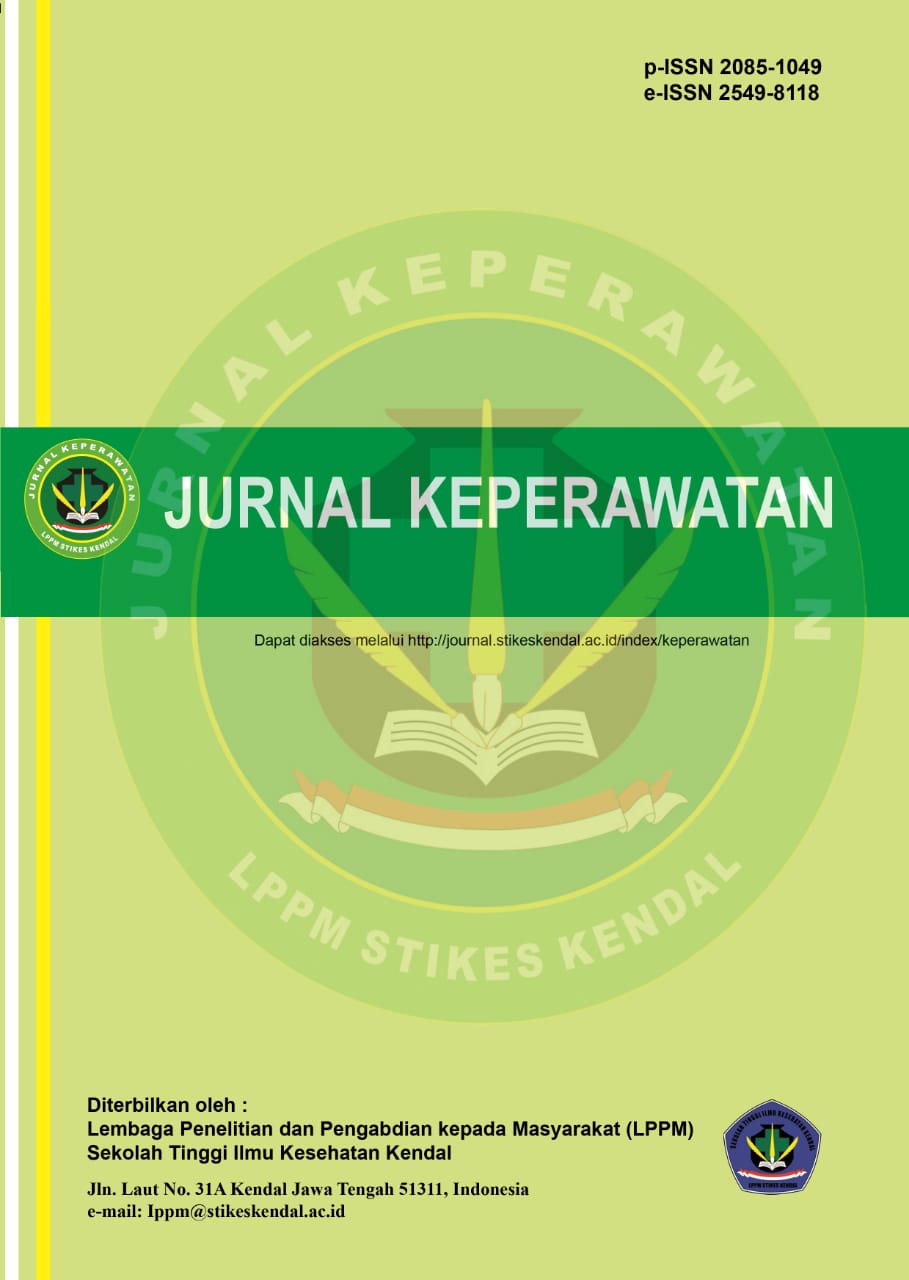The Relationship Between the Application of Spiritual Care and Social Support with the Spirituality Level of Patients Confirmed Positive for Covid-19
Keywords:
covid-19, spiritual care, spirituality level of covid-19 patients, social supportAbstract
The COVID-19 pandemic has had a major impact on physical, economic, social and mental health so that it can affect the level of spirituality in humans. This study aims to determine the relationship between implementation and social support with spirituality levels in patients who are confirmed positive for Covid-19. This study used a cross sectional design on 138 confirmed Covid-19 patients at the Jakarta Islamic Hospital and used a questionnaire in the form of a google form with the analysis used, namely multiple logistic regression. The spirituality level scale adapts the daily spiritual experience scales (DSES), the spiritual care implementation scale adapts the Nursing Spiritual Care Therapeutics Scale (NSCTS) and social support adapts the Enrich Social Support Instrument (ESSI). This study shows the results of a significant relationship between the application of Spiritual Care with Spirituality Level (p=0.001) OR 3.919, and social support with spirituality level is very significant with a value (p=0.000/OR 4.167) while the dominant variable, namely social support has a high level of social support. high spirituality OR 3,580 times greater than having good social support compared to individuals who have low social support and the variable of implementing spiritual care OR 3,334 times higher than respondents having low spiritual care after being controlled by gender, age, religion, education and profession. This study recommends the need for nurses to increase spirituality values in confirmed Covid-19 patients to be able to increase patient spirituality.References
Force, T., Lau, G., & Sharma, M. (2020). Clinical practice guidance for hepatology and liver transplant providers during the COVID-19 pandemic: APASL expert panel consensus recommendations. Hepatology International, 14(4), 415.
Kementerian Kesehatan RI. (2020).Pedoman Pencegahan Dan Pengendalian Corona Virus Deases (Covid-19)‟, Kementrian Kesehatan, 5, P. 178.
Keputusan Menteri Kesehatan Republik Indonesia (2020) „Keputusan Menteri Kesehatan Republik Indonesia Nomor Hk.01.07/Menkes/413/2020 Tentang Pedoman Pencegahan Dan Pengendalian Corona Virus Disease 2019 (Covid-19)‟, Menkes/413/2020, 2019
Kemenkes (2020) „Direktorat Jenderal Pencegahan Dan Pengendalian Penyakit Kementerian Kesehatan Ri Tahun 2020‟, Germas, Pp. 1–64.
Kim, J. U., Majid, A., Judge, R., Crook, P., Nathwani, R., Selvapatt, N., ... & Lemoine, M. (2020). Effect of COVID-19 lockdown on alcohol consumption in patients with pre-existing alcohol use disorder. The Lancet Gastroenterology & Hepatology, 5(10), 886-887.
Kiran, Y. And Dewi, U. S. P. (2017) „Pengetahuan Dan Sikap Perawat Dalam Memenuhi Kebutuhan Psikologis Dan Spiritual Klien Terminal‟, Jurnal Pendidikan Keperawatan Indonesia, 3(2), P.182. Doi:10.17509/Jpki.V3i2.9425.
Liang, L., Ren, H., Cao, R., Hu, Y., Qin, Z., Li, C., & Mei, S. (2020). The effect of COVID-19 on youth mental health. Psychiatric quarterly, 91(3), 841-852.
Ng, D. L., Goldgof, G. M., Shy, B. R., Levine, A. G., Balcerek, J., Bapat, S. P., ... & Chiu, C. Y. (2020). SARS-CoV-2 seroprevalence and neutralizing activity in donor and patient blood. Nature communications, 11(1), 1-7.
Nur, H. (2017) „Hubungan Spiritualitas Perawat Dan Kompetensi Asuhan Spiritual‟, 2, Pp. 1–34.
Mahardining, A. B. (2010). Hubungan M Antara Pengetahuan, Motivasi, dan Dukungan Keluarga dengan Kepatuhan Terapi ARV ODHA. Jurnalnal KESMAS, 5(20), 131– 137Journal Of Medical. Ozbasaran, F., Ergul, S., Temel, A., Aslan, G., & Coban, A. (2011).
Ozbasaran, F., Ergul, S., Temel, A., Aslan, G., & Coban, A. (2011) „Turkish Nurse‟s Percepstions Of Spirituality And Spiritual Care. Journal Of Clinical Nursing‟, Journal Of Clinical Nursing.
Turkish Nurse‟s Percepstions Of Spirituality And Spiritual Care. Journal Of Clinical Nursing‟, Journal Of Clinical Nursing.
Tristanto, A. (Agustus, 2020) Dukungan kesehatan jiwa dan psikososial (dkjps) dalam pelayanan sosial lanjut usia pada masa pandemi Covid - 19. Sosio Informa, 205 - 222. Diperoleh ta nggal 31 Januari 2021 dari https://ejournal.kemsos.go.id/in dex.ph p/Sosioinforma/article/view/234 8/1195.
Wardhono.(2012). Menuju Keperawatan Profesional. Semarang: Akper Depkes.
WHO (2020).Tatalaksana Klinis Infeksi Saluran Pernapasan Akut Berat ( Sari )Suspek Penyakit Covid-19‟, World Health Organization, 4(March), Pp. 25.
Yudhawati, D. D., & Listiowati, E. (2015). Evaluasi Penerapan Identifikasi Pasien di Bangsal Rawat Inap RSI Siti Aisyah Madiun. JMMR (Jurnal Medicoeticolegal dan Manajemen Rumah Sakit), 4(2).
Yusuf, A. Et Al. (2016) „Kebutuhan Spiritual : Konsep Dan Aplikasi Dalam Asuhan Keperwatan‟, Ners Unair Repository, (May), P. 326.
Downloads
Published
How to Cite
Issue
Section
License
Copyright (c) 2022 Jurnal Keperawatan

This work is licensed under a Creative Commons Attribution-NonCommercial-NoDerivatives 4.0 International License.




